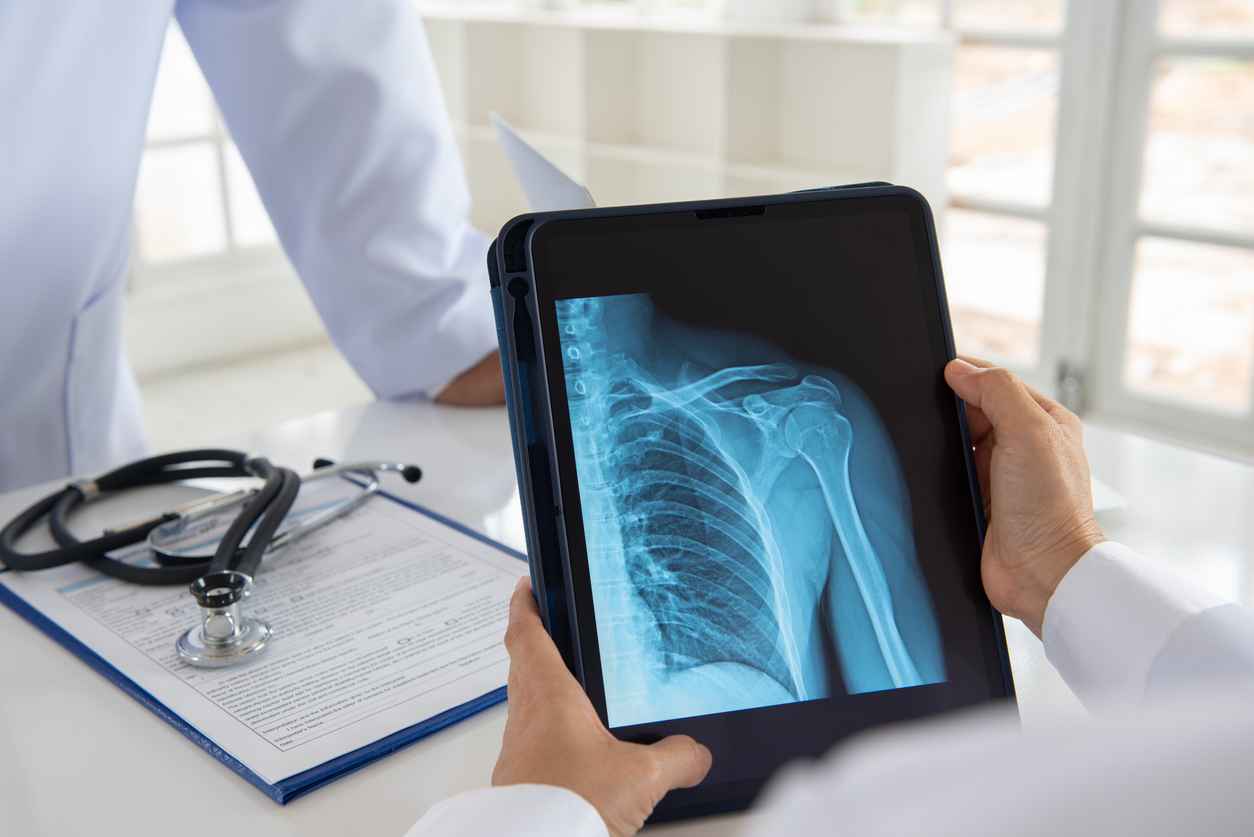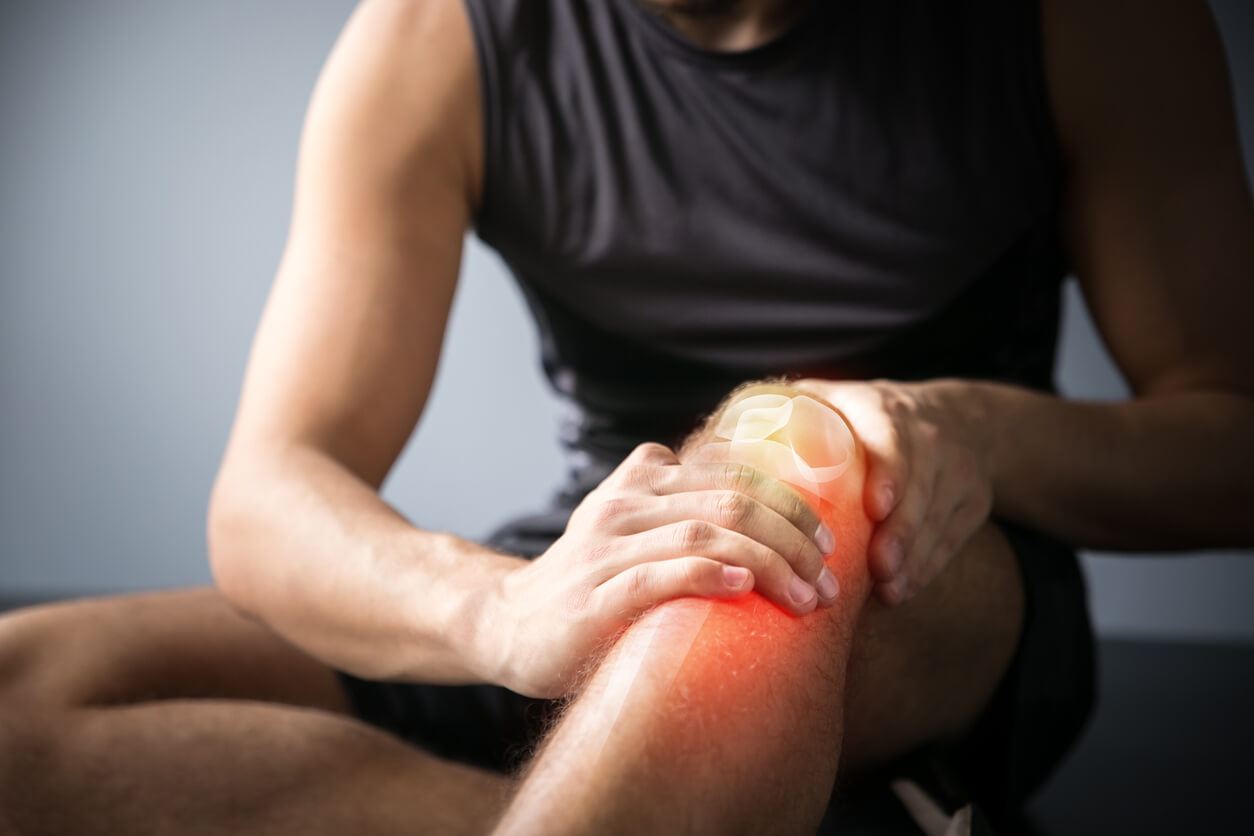
Shoulder Pain: Symptoms, Causes and Risk Factors
Shoulder pain is any pain or discomfort affecting the shoulder or surrounding areas. The shoulder is the body’s most mobile joint and enables the arm to have a wide range of motion. Shoulder pain is very common, and most people will experience shoulder pain at some point in their lives.
The shoulder consists of the upper arm bone (humerus), collarbone (clavicle), and shoulder blade (scapula), along with the shoulder muscles themselves, ligaments and tendons, nerves, and blood vessels. Any of these structures can become irritated, injured or inflamed resulting in shoulder pain. For example, shoulder pain can be due to the following:
- Minor muscle strains
- Repetitive use injuries
- Repeated overhead motions – such as pitching a baseball game
A common traumatic cause of shoulder pain is a tear of the rotator cuff, the muscles and tendons that hold the arm bone (humerus) in place in the shoulder joint. The rotator cuff creates the arm’s range of motion. When the rotator cuff is damaged, you may experience shoulder pain or weakness when moving your shoulder socket or arm.
Shoulder pain and shoulder problems can also result from serious conditions, such as an infection, tumor, nerve condition, arthritis, or even a heart attack. Depending on the underlying cause, shoulder pain may last briefly or persist for weeks. It may feel like a dull ache, or it may be sharp and jolting in a specific area.
Generally, shoulder pain caused by a minor condition, such as a small muscle strain, resolves by itself in a few days or weeks with basic self-care measures, such as icing the shoulder, resting the shoulder, and taking over-the-counter pain medications.
Because shoulder pain can be a symptom of a condition that requires medical treatment, you should seek prompt medical care for unexplained shoulder pain. In some cases, shoulder pain is a symptom of a serious or life-threatening condition that requires emergency medical care, such as a heart attack or shoulder dislocation. Seek immediate medical care (call 911) if you, or someone you are with, have a new shoulder deformity or are unable to move the affected arm. Other serious symptoms include chest pain, jaw or neck pain, shortness of breath, dizziness, and sweating.
What Other Symptoms Might Occur with Shoulder Pain?

Shoulder pain may accompany other symptoms, which vary depending on the underlying disease, disorder or condition. Shoulder pain may originate in the shoulder itself or may be caused by conditions that affect other body areas, such as the neck, abdomen, chest, or upper arms.
Additional Symptoms That May Occur with Shoulder Pain Include:
- Achiness
- Back, neck or arm pain
- Bruising
- Clicking and other noises when you move your arm
- Fatigue
- Fever
- Grinding or popping feeling
- Muscle stiffness and weakness
- Painful movement of the arm
- Swelling (edema) of the arm
- Warmth or burning
- Symptoms that might indicate a serious or life-threatening condition
In some cases, shoulder pain may occur with other symptoms that might indicate a serious or life-threatening condition, such as a heart attack, which should be immediately evaluated in an emergency setting. Seek immediate medical care (call 911) if you or someone you are with has shoulder pain accompanied by any of the following symptoms:
- Chest pain, pressure or tightness
- Deformity or serious swelling of the shoulder or arm
- Difficulty breathing or shortness of breath
- Difficulty moving or inability to move the arm
- Jaw or neck pain, especially if it occurs with chest pain
- Neck stiffness after an injury or trauma, such as a fall or motor vehicle accident
- Severe abdominal pain
What Causes Shoulder Pain?

Shoulder or shoulder pain occurs and can be caused by a wide variety of conditions that cause inflammation, infection, nerve compression, or injury of the shoulder. Common causes of shoulder pain include arthritis and injury caused by excessive, repetitive, or overhead motions that involve the shoulder, such as occurs with baseball pitching or construction work.
A common cause of shoulder pain is a tear of the rotator cuff, the muscles and tendons that hold the arm bone (humerus) in place in the shoulder joint. The rotator cuff also enables the arm’s range of motion. A torn rotator cuff tendons results in shoulder pain or weakness when you move your arm.
Shoulder pain can also be caused by diseases or conditions of the body outside the shoulder area, such as heart attack or gallbladder disease. This is called referred shoulder pain.
Musculoskeletal Causes of Upper Arm Bone and Shoulder Pain
Shoulder pain may be caused by injury or disease of the muscles, bones, tendons or ligaments of the shoulder, neck, or upper arm including:
- Activities involving constant, repetitive shoulder use
- Arthritis including osteoarthritis, rheumatoid arthritis, and gout
- Bone fractures, such as a fractured humerus (upper arm bone) or collarbone (clavicle)
- Bursitis (inflammation of fluid-filled sacs that protect joints and allow movement)
- Cervical spondylosis (degeneration of bones and cartilage in the neck)
- Fibromyalgia (chronic condition causing pain, stiffness and tenderness)
- Frozen shoulder syndrome (muscles, tendons and ligaments become stiff resulting in painful and difficult movement)
- Poor posture or keeping the shoulder in an abnormal position for long periods, such as when sleeping
- Rotator cuff tear or rotator cuff tendonitis (inflammation of the tendons of the rotator cuff)
- Shoulder joint dislocation or shoulder separation (tearing or stretching of ligaments)
- Shoulder or upper arm muscle strain
- Whiplash (sprained or strained neck)
Other Diseases and Conditions That Can Cause Shoulder Joint Pain
Other diseases, disorders and conditions that can cause shoulder pain include:
- Gallbladder disease such as gallstones
- Headache
- Heart attack
- Infection of the shoulder joint
- Pancreatitis
- Pinched nerves
- Ruptured spleen
Questions for Diagnosing the Cause of Shoulder Pain

To diagnose your condition, your doctor or licensed health care practitioner will ask you several questions related to your shoulder pain. Providing complete answers to these questions will help your health care provider determine the cause of your shoulder pain. Questions include:
- In what part of the shoulder do you feel pain?
- When did the shoulder pain start?
- How long does the shoulder pain last?
- Are there any activities that cause the shoulder pain?
- Are you experiencing any other symptoms?
- Have you had any trauma to the shoulder?
- What are the potential complications of shoulder pain?
Complications associated with shoulder pain and its underlying cause can be progressive. In some cases, shoulder pain may become a chronic condition and affect your daily life. Once the underlying cause is determined, following the treatment plan outlined by your doctor can help reduce any potential complications including:
- Absenteeism from work or school
- Disability
- Permanent nerve damage
- Poor arm and shoulder movement
- Poor quality of life
Get Expert Orthopedic Care for Shoulder Pain in Chapin, SC
At Palmetto Bone & Joint, we pride ourselves on our ability to restore our patients to sporting shape. From fluke sports injuries to total joint replacement, we combine the latest orthopedic technologies and methods with our outpatient Chapin Surgery Center to get you back and moving in no time flat. If you’ve been dealing with shoulder pain, elbow pain, stiffness, swelling, or tenderness, schedule your appointment with the orthopedic specialists at Palmetto Bone & Joint today.



